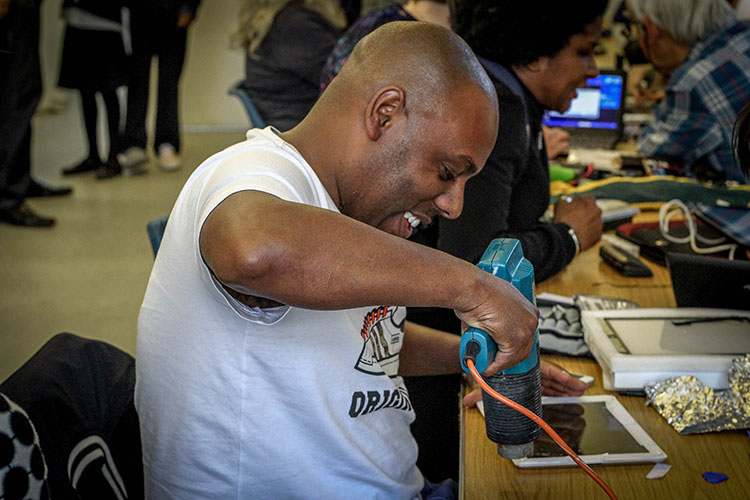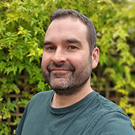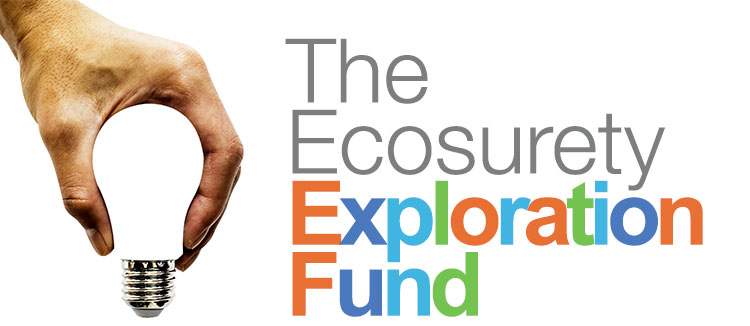Launched just over a month ago, the Ecosurety Exploration Fund has been created to provide vital funding for projects tackling the negative effects of packaging, batteries and e-waste on the environment.
The fund, which has ring-fenced £1million over the next three years, will provide successful applicants with up to £150k of finance. Deadline for applications is 10 March 2020.
In order to ensure the fairest selection process possible, Ecosurety has pulled together a panel of independent judges who will work together to identify projects that can tackle some of the most pressing environmental issues around packaging, batteries and e-waste through innovation or research.
In our series of interviews, interested applicants can discover what the judges’ key demands will be - and what issues they think need to be prioritised in order to tackle the raft of challenges around waste and help the UK transition towards a more circular economy. So far we have published interviews with Mike Barry, Peter Maddox and Libby Peake - here we bring you our fourth interview with Janet Gunter.
Janet Gunter - Co-founder and Outreach Lead at the Restart Project
Janet Gunter is Co-Founder and Outreach Lead at the Restart Project, a London-based social enterprise that aims to “fix our relationship with electronics”. The Restart Project was born in 2013 out of a frustration with the throwaway, consumerist model of electronics that we’ve been sold, and the growing mountain of e-waste that it’s leaving behind. By bringing people together to share skills and gain the confidence to open up their stuff, the Restart Project gives people a hands-on way of making a difference, as well as a way to talk about the wider issue of what kind of products we want.
Janet is an American/British activist, anthropologist and specialist in social innovation and communications, who has lived and worked in Brazil, East Timor, Portugal and Mozambique
In the fourth of our panel interviews, Janet gives some insights into what inspires her, what she thinks a future circular economy should look like and what kind of projects she is hoping to see coming through the Ecosurety Exploration Fund.
How did you get to where you are today?
It was an unconventional path, from living in UN-administered East Timor, to a year in Portugal’s colonial archives to working with farmers in Mozambique on policy and land rights. The thing that links everything together is an interest in justice and power - how our global system produces winners and losers, and how we are exploiting the planet to maintain unsustainable lifestyles. At some point I became more interested in our behaviour in Europe and North America, and our demand for resources.
Name a person or project that has inspired you in your work and explain why?
Mr. Júlio Pêssego, a farmer and activist in northern Mozambique, inspired me when I worked with him almost a decade ago. He taught me the softer and slower side of social change, and the difference kindness, compassion and humour can make. Find out more here.
What do you consider to be the biggest challenge facing the UK resources and waste sector at the moment?
The need to face up to numbers, and get real about what they mean for our economic system. We are facing the need for rapid system change. Tweaks at the margins will not do. Both to meet our NetZero target, but also to deal with our unchecked consumption of natural resources.
What solutions do you think need to be developed in the resources and waste economy?
We need to start with changes that make our lives better, and build on those. One example: enabling repair and reuse that connects people and increases their sense of well-being.

Photo: Camden Restart Project
Polls show this is massively popular. System-level levers are a part of this equation: both in terms of resource regulation and policy but also in terms of finance and taxation. We need to be bold and be ready to positively remake and redesign much of our economy.
What role must brands and producers play in a transition to a more circular economy?
Stop getting in the way of repair and reuse. We’ve reached a point where the public knows that recycling is a last resort, and that extending product lifecycles is the solution. Takeback schemes should allow for second and third lives of products, instead of channelling them directly to the shredder. Producers must redesign business models accordingly, and push the government for policies that enable this and create a level playing field.
Describe what a resources and waste economy of the future looks like to you?
Completely different. Our future is based in sufficiency - not efficiency. Our future is based in creating meaning through human connection and stewardship of our natural world. While we might not expect it, we will remove many kinds of stress from consumerism. We will have new stresses and challenges. We will gain new skills. And we will look back on this period as one of shocking excess.
Is the transition to a more circular resources and waste economy led by Government or by business?
Government has a big role to play and we feel up until now, it’s largely been business-led. The businesses that are most disruptive and innovative in this area have largely been privately held. We’ve seen noble attempts to re-orient publicly listed businesses die with shareholder revolts. And our allies in business absolutely need government on side.
What sort of projects would you like to see coming through the Ecosurety Exploration Fund?
Radical ones. We’re here for those!
What do you think will be the main challenges when selecting the winning projects?
Picking a mix of small-scale and larger-scale projects.
What would be your one piece of advice to Ecosurety Exploration Fund applicants?
Don’t be afraid to be radical. And definitely do not forget about people, everything starts and ends with them.
About the Ecosurety Exploration Fund
Over three years the Ecosurety Exploration Fund will invest £1million in projects that can reduce the environmental impact of packaging, batteries or WEEE through innovation or research in the UK. We are looking to support ideas up to £150,000 that will go on to make a bigger impact beyond the initially funded project - especially those that may ordinarily struggle to get off the ground.
Applications to the Ecosurety Exploration Fund can be made via the Ecosurety website by clicking here, where full details on eligibility and how to apply can be found.
The deadline for submissions is 11.59pm, 10 March 2020. Judging will take place on 21 April 2020 and the winners will be announced at a special event in May 2020.
If you have any questions regarding the Ecosurety Exploration Fund, please contact us by emailing explorationfund@ecosurety.com or by calling 0333 4330 370.

Ben Luger
Marketing projects specialist
Ben joined the team at the beginning of 2015 and helps drive marketing communications and projects for Ecosurety, including project managing the launch of the Ecosurety Exploration Fund and website content development.

Latest News

Q2 2024 recycling data shows strong performance in H1
By Sam Marshall 24 Jul 2024
Ecosurety continue to step up for refill and reuse
By Victoria Baker 24 Jun 2024
Ecosurety renews B Corp™ certification with flying colours
By Louise Shellard 11 Jun 2024
Ecosurety sponsor the 2024 Carbon Literate Organisation Awards
By Louise Shellard 07 Jun 2024

